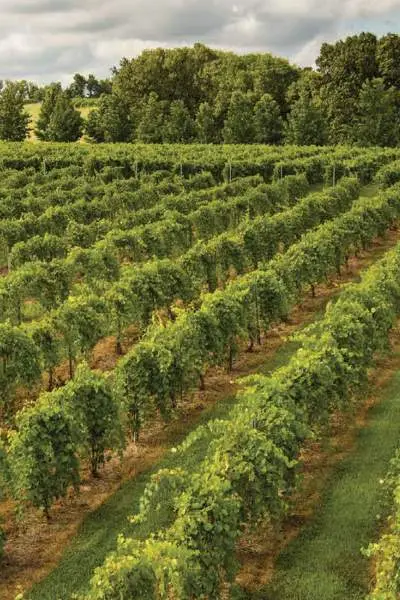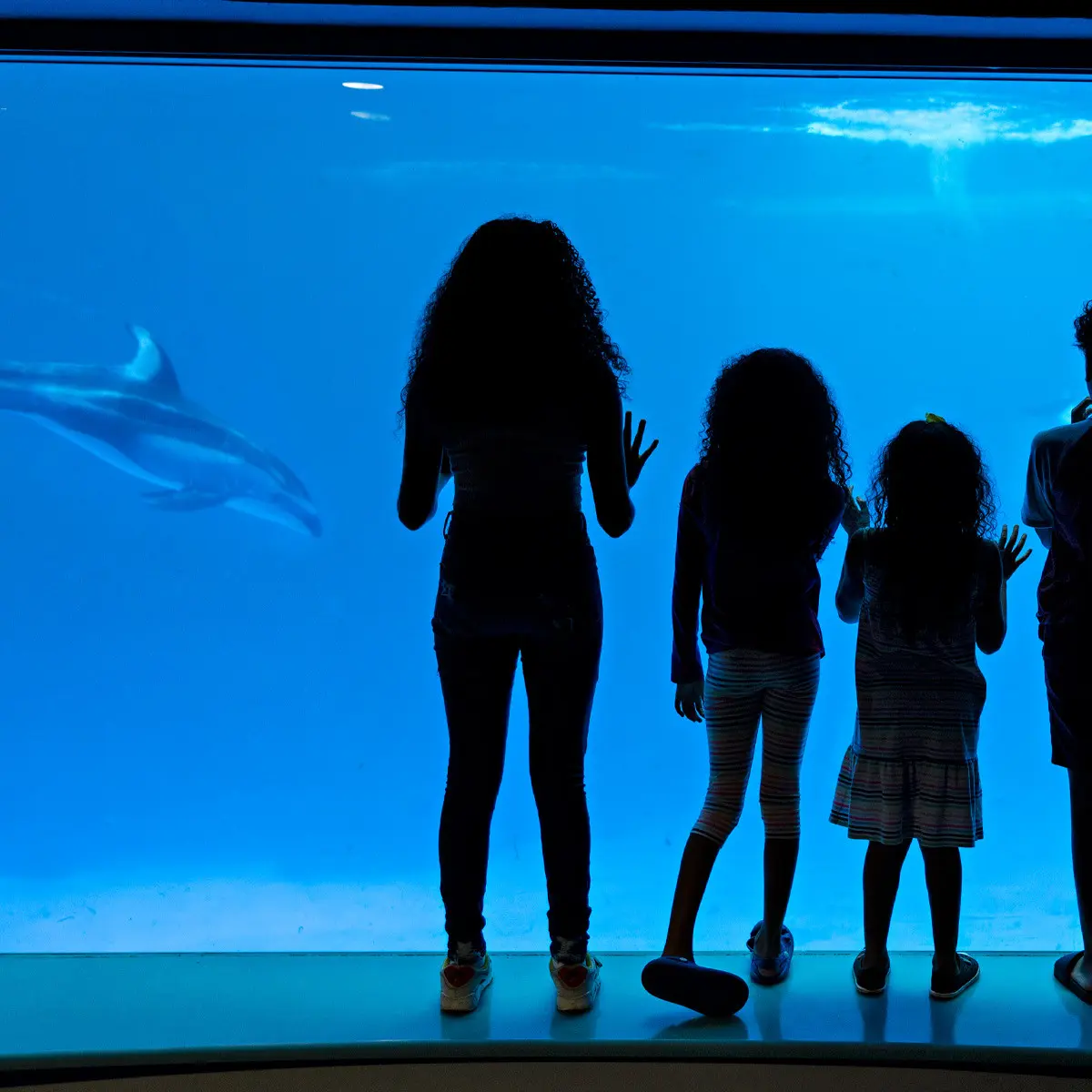
An Illinois distiller, brewer and winemaker discuss their crafts and welcome you to stop in for a taste.
In Illinois, the perfect craft beverage is never far away.
You can follow the Illinois River to see how a family's small-batch whiskey is distilled in a town that was once the country's whiskey capital. Travel to Chicago for a tour of one of the state's biggest craft breweries, headed by a locally trained brewer. Or wander through southern Illinois' rolling green hills to explore an Italian-style vineyard and meet its female winemaker. No matter which route you take, you'll want to stick around for the scenery, and a sip or two.
Blue Sky Vineyard
Makanda
After winding through rolling hills and limestone bluffs, visitors exploring southern Illinois’ Shawnee Hills Wine Trail will eventually come across Blue Sky Vineyard in Makanda, with its landmark Tuscan-style villa and neat rows of grapevines zigzagging across its 12-acre property. Inside the tasting room, award-winning wines are served, including a Double Gold Medal Rosé.
The look of the winery is as traditional as any you’ll find in the Italian countryside, with huge, hand-carved wooden entry doors and decorative 200-year-old tiles in the tasting room. But Blue Sky winemaker Karen Hand stresses that novices are as welcome here as seasoned enthusiasts. “I’d like to get rid of the whole idea of the wine snob,” she says. “We get a lot of people who are down here to see the Shawnee National Forest, and some of them might not even know that this is a wine region, and might not have a lot of experience with wine tasting.” It’s the staff’s job, she says, to educate guests, and make them feel comfortable so they can ask questions and learn about the wine and the region.
Blue Sky, which celebrated its 10th anniversary last year, has always attracted crowds with its beautiful grounds, where oenophiles can unpack a lunch, share a favorite vintage or stroll over to the gazebo for views of the waterfall. “We also have live music out there on the weekends,” notes Hand.
While varietals such as Chambourcin and Cabernet Franc conjure flavors of provincial France, Blue Sky’s wines have a decidedly local flavor. “What we have here is pretty unique,” Hand says, adding that Shawnee Hills is a designated American Viticultural Area, or unique wine-growing region. “We’re not trying to make a California wine,” she says. “We’re trying to make a wine that reflects this area.”


J.K. Williams Distilling
East Peoria
Just the right amount of mystery, history and coincidence surround the making of J.K. Williams Distilling in East Peoria. In fact, the roots of the craft distillery, which opened in 2013, can be traced back to a Prohibition-era family secret.
It all came to light when founding couples Jon Williams and wife Kristin, and Jesse Williams and his wife Kassie, first revealed their idea for a craft distillery to family members.
“We were having dinner and we talked about opening a distillery,” recalls Jon. “Our grandfather said, ‘You know, your great-great grandfather used to be a moonshiner.’” The brothers had no idea, but the revelation made them even more assured of their pursuit. “We thought, heck yeah, this sounds cool. It seemed destined to be.”
And the coincidences tying the Williamses to their bootlegging Illinois ancestor didn’t end there. “His name was J.K. Williams: Jesse and I are J’s and Kristin and Kassie are K’s, so we’re all well-represented.”
The brothers also learned that Peoria was once America’s whiskey capital, with 73 distilleries producing more bourbon and rye than any other city between 1837 and 1919. “It seemed fitting to bring that back here,” says Jon.
Visitors to the distillery will find a simple aluminum-and-concrete-block building, a facade that’s in sharp contrast to the creativity and experimentation going on inside. “People have really opened up and are looking for something more out of the box,” notes Jon. And J.K. Williams delivers, offering small-batch whiskeys conditioned with coffee and infused with pineapple or other unexpected flavors. Visitors can sample these one-of-a-kind liquors by taking a weekend tour of the distillery, which ends with a free tasting.


Revolution Brewing
Chicago
Josh Deth, founder and “Chairman of the Party” at Chicago’s Revolution Brewing, makes brewing for a 70,000-barrel-a-year outfit sound deceptively easy. “You take good water, add some grains, some hops and yeast, and you sell it to people,” he says. “We try to make beers that we think are refreshing and will make people want to have another one.”
With Revolution’s 50 percent growth year over year, he makes success in the brew business seem easy—despite a crowded market. “For years, Chicago was underrepresented in terms of craft breweries, and now you really see a lot,” he says, referencing the 130 or so breweries in the Chicago area. Just over five years ago, when Revolution launched, the city had only two: Half Acre and Deth’s former employer, Goose Island, now owned by Anheuser-Busch.
But Deth doesn’t fear competition; he’s proud of the booming Midwest beer scene. “There’s something to be said for the crew of brewers here who are making quality beers and setting a new standard for hoppy IPAs,” he says. “We’re all growing.”
The key ingredient to Chicago’s beer success? “The number one thing is Lake Michigan water,” Deth says. “It’s great water.” The renowned Siebel Institute’s brewing school located here and the city’s vibrant tavern culture also contribute, he says.
That culture can be experienced firsthand at the Revolution Brewing Brewpub in the heart of Logan Square, one of Chicago’s hippest neighborhoods. Another option, just 1.5 miles away, is the brewery and taproom, offering free tours. “We’ve got 16 beers on tap at both, and people like variety so we’re always doing something new,” Deth says.
Share your Moments
#EnjoyIllinois




